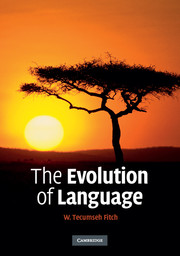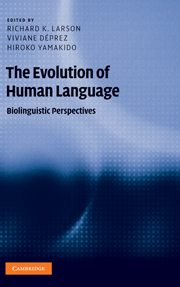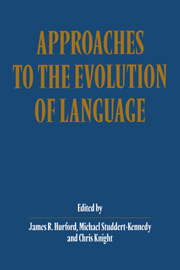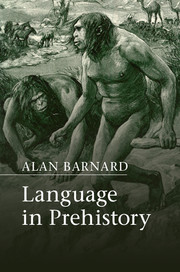The Evolution of Language
Language, more than anything else, is what makes us human. It appears that no communication system of equivalent power exists elsewhere in the animal kingdom. Any normal human child will learn a language based on rather sparse data in the surrounding world, while even the brightest chimpanzee, exposed to the same environment, will not. Why not? How, and why, did language evolve in our species and not in others? Since Darwin's theory of evolution, questions about the origin of language have generated a rapidly-growing scientific literature, stretched across a number of disciplines, much of it directed at specialist audiences. The diversity of perspectives - from linguistics, anthropology, speech science, genetics, neuroscience and evolutionary biology - can be bewildering. Tecumseh Fitch cuts through this vast literature, bringing together its most important insights to explore one of the biggest unsolved puzzles of human history.
- Explores a fascinating puzzle - how did we humans develop the ability to speak?
- Unlike previous books, it combines insights from many different disciplines
- A useful glossary of terms helps readers from all backgrounds understand the concepts
Reviews & endorsements
“Reconstructing the evolution of language is a daunting task but Tecumseh Fitch brings it off with style. An impressive synthesis.” --Robert Seyfarth, Department of Psychology, University of Pennsylvania
“The evolution of language has been described as the hardest problem in science, fraught with conflict, entrenched views, and misunderstandings between the multifarious disciplines involved. Fitch guides us through this tangled and often treacherous domain with clarity, equanimity, and encyclopedic reach. No other book so completely, fairly, and eloquently presents contemporary notions as to how language evolved.” --Michael Corballis, University of Auckland
Product details
May 2010Paperback
9780521677363
624 pages
247 × 174 × 28 mm
1.21kg
25 b/w illus. 6 tables
Available
Table of Contents
- Introduction
- Part I. The Lay of the Land:
- 1. Language from a biological perspective
- 2. Evolution
- 3. Language
- 4. Animal cognition and communication
- Part II. Meet the Ancestors:
- 5. Meet the ancestors
- 6. The last common ancestor
- 7. The hominid fossil record
- Part III. The Evolution of Speech:
- 8. The evolution of the human vocal tract
- 9. The evolution of vocal control
- 10. Modelling the evolution of speech
- Part IV. Phylogenetic Models of Language Evolution:
- 11. Language evolution before Darwin
- 12. Lexical protolanguage
- 13. Gestural protolanguage
- 14. Musical protolanguage
- 15. Conclusions and prospects.









